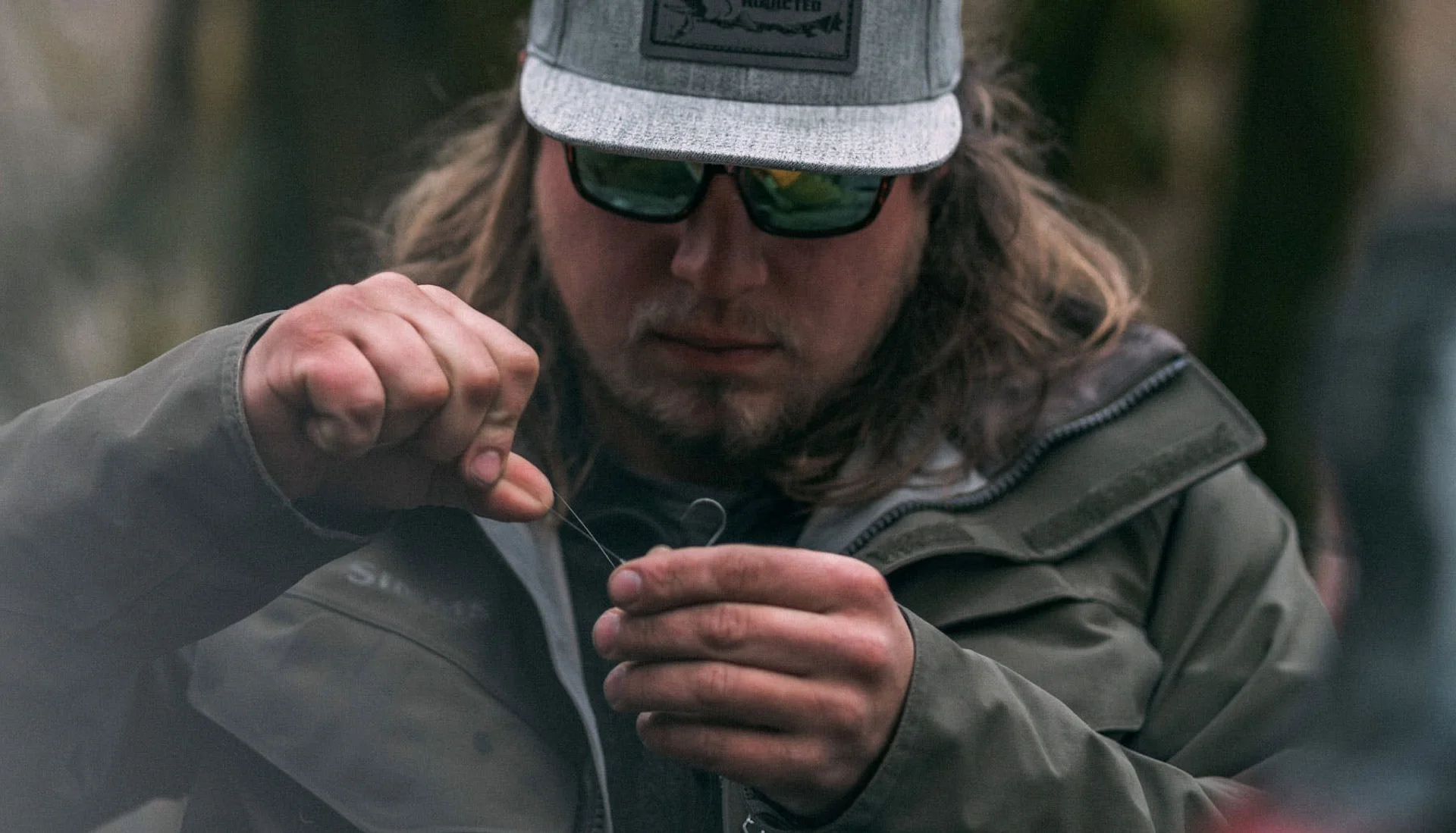Worm Jig Tactics

If ever the term “Go with the flow” was applicable, it’s Cameron Black’s worm jig technique.
Black partners with Marlin Lefever in the Columbia River-based Addicted Fishing guide service. Mastering this and other salmon/steelhead tactics, these Pacific Northwest anglers have worked with Mustad to develop several technique-specific tackle including a Steelhead Jig Kit that contains 1/8- and 1/4-ounce worm jigs.
As Black explains, these jigs feature a sturdy Mustad Ultrapoint hook with the same KVD Grip Pin keeper popularized by several Mustad bass hooks. A key design point is the head shape, a detail that Black finds particularly helpful in fooling perceptive steelhead.
“The difference between a worm jig and a standard round ball jig is that it has a flat surface,” he said. “When you butt a rubber worm against the head, you have a flat surface, so it’s kind of a streamlined look.
“At the end of the day, steelhead probably don’t care if it’s the difference between a round head and the flat back, but when you add weight to a round head jig, the profile gets continuously bigger. When you use a 1/4-ounce flat back, you just extend that piece back so you get the same profile with an 1/8- and 1/4-ounce jig heads.”
Noting that steelhead can be very particular, Black said this streamlined presentation can mean the difference between a looker and an eater. With most steelhead growing up on a diet of earthworms and baby lamprey, the worm jig package, properly presented, can be deadly.
Black’s preference is a 4- to 6-inch tube worm — specifically, the Addicted Steelhead Worm — in pink, orange, purple or blue. With worm and jig head suspended under a Mustad Addicted balsa float, the rig is fished with the current for a natural presentation.
“As the worm is drifting down the river, a steelhead keys on it, swims over and grabs the bait, buries the bobber and drives the hook home,” Black said. “A lot of this is in-river fishing — boulder mazes, riffles. This is a really versatile lure because you can fish it in 6 inches of water — sometimes, the steelhead are that shallow — and you can fish it in 10 feet of water.”
As far as imparting action on the rig, Black says: Don’t bother. The water does all the work for you.
“You’ll get some natural movement with the roils in the current and maybe some up and down if you’re fishing it in a little bit of a riffle, but it take such little movement for the worm’s tail to move,” he said. “Really, what you’re looking for is when you cast upriver, you want that bobber and that worm to drift as naturally as possible. You don’t want to be pulling on it and you don’t want to have too much line in the water to where it’s impacting the bobber and the worm.”
Ideal depth for worm presentation, Black said, is about a foot off the bottom. Keep it in the fish’s face and the worm jig is an easy sell.
